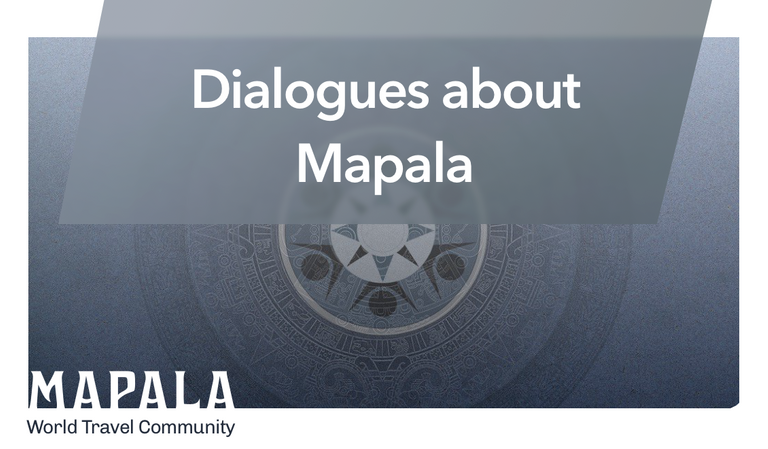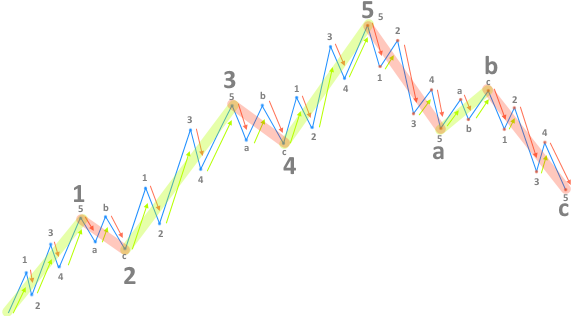
After the last interview with the architect of Mapala Project @dark.sun, there was a talk behind the blog's curtain:
Tarimta: Things have been quiet recently with Mapala
Katrin: Yesterday we posted an article in the Mapala's blog – it is exactly about this calm period, you can read it
Tarimta: I read, and I voted
Katrin: so, you see)
Tarimta: The interview was definitely moderated) I would ask plenty of tricky questions)
After that a lot of tricky questions were addressed to @dark.sun, it was even quite hard for him to handle all of them :) So, here is the interview we had.
- How can you guarantee to members of the community that Mapala will not betray its principles if one of the main investors demands to defy them?
– The most important thing about Mapala is that we do not have the main investors who may demand to defy something. Mapala is taking the course from centralization to decentralization. In other words, when the time comes, we will fully delegate the control authority. How this will happen is an evolutionary issue. Everything depends on the community development.
We believe that the community must be able to manage itself, but no one is ready for this yet. That's why our direction is from centralization to decentralization, and the investors put in a part of their energy to develop the project just as we put in some of ours. Investors do not have a direct influence on what we are doing now. But we are tuned in to the community and understand what it needs.
– Any project has its ups and downs. Does the project have any reserves that will help it to survive a crisis?
- That's one of my favorite questions :-))
I've been doing a quite a deep research on information waves. They way a project develops and the way people's mood changes is a very interesting topic that belongs to the science of sociodynamics.
A project exists according to the law of information wave propagation. Bitcoin, Golos, Mapala – all of these are examples of information waves. It all depends on value embedded in a project. If there is value, people are ready to distribute it, which leads to a chain reaction and rapid growth.
Any project develops in waves, you can't avoid a recession. But then growth comes to replace it – this is how the information wave development works. Such things happen because people are people – we love and hate. These are two sides of the same coin, and this is absolutely normal. 'Oh, bitcoin, it won't survive tomorrow!' This is nothing more than the process of transition from one information wave to another.
We have the same thing. If most people suddenly start thinking that a project is a dead end for some reason, it means that a new wave of growth is coming. This growth will occur, because the team's core understands how to implement this growth, and it will make it happen.
The process of information waves change has been described many times and scientifically proven. There is no need to fight with it. In this case, it is important to understand sentiments of masses, the way you can affect the current reality and a new wave.
– What determines a new wave?
– It is determined by two main parameters: system capacity and information propagation speed.
An information system is always limited. It can be limited to the number of people on Earth or to the number of people ready to perceive information. Capacity is a variable, because external conditions change. For instance, an economic crisis will dramatically increase the capacity of the blockchain technology information system.
The propagation speed depends on the value that the new information contains. If the information is valuable and important, people share it, which leads to a chain reaction of propagation. For example, if tomorrow the electricity turns off, we will have a lot of rumors explaining why. And the answer is – because this is important.
The market is the most obvious reflection of people's mood. The Elliott Wave Theory explores the massive behavior of people on the market:

I started my research on information waves with this theory. Today when I look at what's happening in Mapala, I have no doubts that The Wave Theory works. Have a look at our ICO chart and try to track down a new information wave ;-)).

The first wave lasted 3-4 weeks – we entered Golos. Everybody was like, 'Wow! Mapala!' After that the people's mood fell, 'Uh, why don't they say anything?' And now we started to give more information, and we got the investments flow growing again. Try to break it down into five waves up and three down, I am sure you will manage ;-)) There is not a single Elliott's rule violated here.
Now we are negotiating with major investors. If they enter the project, the amount of investments we already have attracted will increase at times. This will be a new wave of growth.
– The Mapala team is Russian-speaking. But the project claims to be international. Do you have any plans to attract foreign developers and investors? And in this regard, are not you afraid of misunderstandings due to differences in mentality?
– Everybody is interested in traveling with no boundaries. Mapala is not just a tourist platform where Russian- and English-speaking users post articles and get money for it.
Mapala will have a much bigger sense; it will be a community of people who live by the principle of brotherhood. When there is a local community in each city, it makes you sure that you can find a friend among the Mapala members from another city. It can be done anywhere on the planet, a person from another country can just come and live as he likes among friends. Friends will show him a city, share what they know, organize some events, provide with accommodation and food. This is what a simple traveler, and actually anybody, needs.
– How many people can speak fluently at least one foreign language at the moment? Will this number grow?
- There are people in the team who speak at least one foreign language. At the moment we do not have other blockchains except Steem & Golos, which means that our language segment is an English- and Russian-speaking audience. We don't have problems with these languages.
When we will be preparing the launch of the Indonesian blockchain, we will need to possess this kind of knowledge or involve other people from time to time.
– And how is Mapala better than a usual tourist trip, when you can both rent accommodation and find a guide who will show you around?
– People very often get stopped by questions like: 'How can I go there? I have no one there, I do not know anyone, I settle into a hotel room and just live around the hotel or drive around an island (if on the island). When I communicate with local people, they tell me something, but they are not involved in what they are doing.'
But, in fact, there are plenty of people like you on this island. You just do not know where they are. And when these people come and do the same things as a guide does, but only with greater enthusiasm and involvement, you feel that you really visited this place, you really embrace the culture of a foreign country and people. You realize that they are not strangers – they are just like you. They have two arms, two legs and one head – everything is the same, they just live a little bit differently. And when they tell and show you everything, you will understand that there are many things that unite you. And the mission of Mapala is to restore this unity all over the world.
- If you were offered to exchange Mapala for, let's say, bitcoins one to one, would you do it?
- I doubt that I will get such an offer in the near future, because the price of our token is 10 kopeks. In relation to bitcoin, this is a nightmare. But inside the team, we change tokens for bitcoins just to make our living. It is known that 810 thousand tokens are distributed among investors, 810 thousand tokens are distributed to the team. And we distribute these tokens within the team using our internal mechanisms.
So, the most active members of the team or the members who work just here withdraw these tokens. And you can see that the money invested in the project is distributed among the team members and become a source of income for them.
If you exchange 1 to 1 (1 bitcoin to 1 Mapala-token) among the team, I would agree. If anyone wants, I am all ready :)
– I was talking not about the token's price but about whether you believe or not in its fast and quite large growth. Does it mean that you do not really believe that the Mapala token will become stronger than bitcoin?
– It is possible only within an alternative economic system that completely satisfies all the needs of people, but built on another token, not on bitcoins. If such a system appears, then yes, it will be 'stronger' than bitcoin. But we have no purpose to form it; we use cryptocurrency in tourism just narrowly.
As for believing in growth... of course we believe :) And moreover, we will do our best to make it rapid.
– What was it exactly that brought you to Mapala: love of traveling, a desire to learn more about the culture, architecture, other places' history, an opportunity to save on traveling or a chance to make good money? If all together, then in what proportions...
– None of those. Let me will explain the idea of the project itself, so you could understand me. Mapala is a way to erase boundaries on planet Earth. It happens when people unite into a community, communities unite among themselves into larger communities, and large communities into super-large communities. Broadly speaking, regions unite into cities, cities into regions, regions into countries, countries into the planet. And when this growth from the local community to a large one occurs, the boundaries will be erased.
And that's what brought me to Mapala - a desire to make sure that there are no boundaries on the planet Earth for ordinary people. That was the reason the project was created, and that is what pushes me forward.
– Are you ready to give up your main activity in the future and fully devote yourself to Mapala?
– I've been working only on Mapala for the last 2-2.5 years. And Alex @lehard has been doing the same for 1.5-2 years. We had our ups and downs, but we are still doing it. Are we ready to give up other activities? We don't have any other activities except Mapala.
– Can you express the essence of Mapala in one phrase or, in other words, its motto?
The Mission is to erase the boundaries: boundaries between people's relationships and their movements on the planet.
I would like to express my thanks to Tarimta for the questions
The post was prepared by Katrin
Great post @mapala, not heard of that platform before, I will have to check it out.
nice post